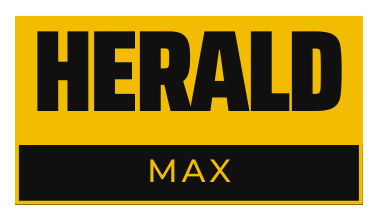
‘Accredited Investor’ holds significant importance in today’s world of investment and is considered to be the backbone of business horizons. They are actually a unique group of financial players recognized by the Securities & Exchange Commission (SEC). Considering that investment is undoubtedly a complex task for businesses as one must verify the credibility of entities before initiating any kind of collaboration or partnership. Nevertheless, the accredited investor verification process is crucial in ensuring compliance with financial regulations. Let’s discover more about this extensive verification process and how it helps ensure compliance in today’s ecosystem of intricate challenges.
Who is an Accredited Investor?
A person or business that is authorized to invest in unregulated private security offers is called an accredited investor. Still, the SEC says that a qualified user must meet these three conditions:
- Skill Set: The person must know a lot about certain financial funds and have a legal set of 7, 65, or 82 licenses.
- Earning: The owner must make at least $2,00,000 to $3,00,000 a year. At the same time, the amount of pay must be kept up every year.
- Net Worth: An accredited investor must have a net worth of at least $1 million, either on their own or with a spouse.
An Accredited Investor Verification Requirement
There are a number of investing situations where an accredited investor verification process is needed. But it’s important for both buyers and producers to have a general understanding of these kinds of tactics. The following types of securities need to be checked to make sure the owner is a qualified investor:
- Crowdfunding
It’s important to be accredited even in the world of donations. Regulation D from the SEC lets qualified buyers take part in crowdfunding offers. These funders also help both new businesses and companies that have been around for a while to make more money.
- Investments in Venture Capital
Venture investments usually give money to startups that are still in their early stages but have a lot of promise. Because these investments are so risky, buyers usually need to be approved before they can make something.
- Hedging Funds
Hedge funds usually need clients who are qualified. Due to the difficult and high-risk nature of the investment plans used by these funds, it is essential that buyers have enough money to participate.
- Private Placements
When shares are sold to a certain group of buyers without going through a public selling, this is called a private placement. Companies that want to raise money through private placements can only give their shares to approved buyers.
Documents Required for Accredited Investor Verification
The main things that are needed to check the past of an investor are these:
- Money Flow Reports: Bank records are used to verify a person’s assets and figure out their net worth during the investment hiring process.
- Tax Return Statements: Tax reports are used by investors to check someone’s income and sometimes their net worth. Most of the time, buyers are asked to show their tax records from the last two years to show that they can pay the money back.
- Account Statements for Investments: Statements from financial accounts are helpful for showing that you own things like stocks and other instruments.
Accredited Investor Verification: The Best Practices
To make sure and keep a qualified
process that works, businesses and financial institutions need to do the following:
Due Diligence for Investors
During the hiring process, the investors must be checked out in more than one way. In fact, complete due diligence is needed, which means that all the information given must be checked against the offered documents.
Constant Monitoring
Know your investor verification is an ongoing process. For this reason, it is very important for companies and banks to set up ongoing checking systems to make sure that approved buyers always meet the requirements.
Working with Skilled Service Providers
For easy accuracy and speed up the process, hire verification service providers who are good at what they do.
Regulatory Compliance
Regulations about how to bring on new qualified investors can change over time. Because of this, companies and clients need to know about any changes that affect them in order to stay compliant.
Last Words
It is the law for businesses and financial institutions that deal with private investments to understand and follow the accredited investor verification process. In fact, it’s an important part of smart investment and building cash. In this regard, service providers help businesses and financial institutions bring new investors on board and give businesses the information they need to make quick, smart choices.





